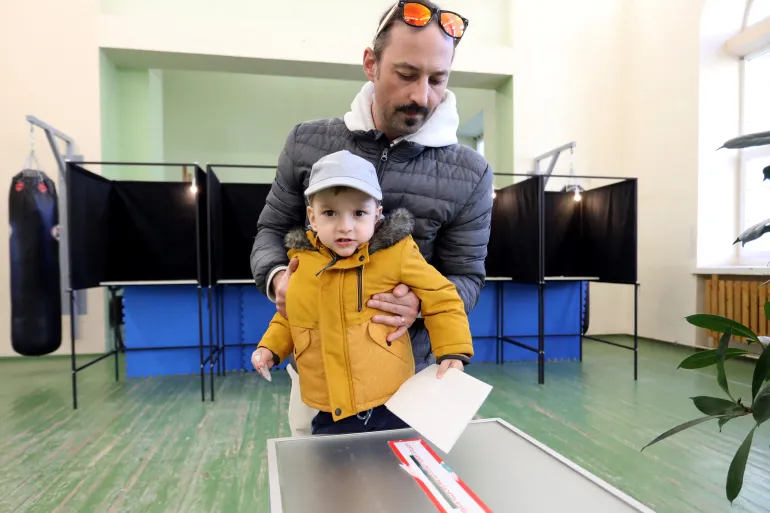Lithuanians went to the polls on Sunday to elect their country’s president amid concerns over the ongoing Russia-Ukraine war, which is affecting the strategically important Baltic state. The country fears that Russia could target it as Moscow intensifies its war against Ukraine. As of now, the incumbent president, Gitanas Nauseda, is expected to win the election and secure another five-year term in office. However, with eight candidates running, it may be challenging for any of them to gather 50 per cent of the votes needed to win outright. In this instance, a run-off vote will be held on May 26.
Lithuania is strategically vital as it is located on NATO’s eastern flank, a matter of great relevance as tensions rise between Russia and the West over Moscow’s invasion of Ukraine, which has now surpassed two years. The Russian exclave of Kaliningrad on the Baltic Sea lies between Lithuania to the north and east and Poland to the south. Lithuania, therefore, and neighbouring Latvia and Estonia, are concerned about Russia’s recent territorial gains in northeastern Ukraine.
In Lithuania’s political system, the president holds a pivotal role. They oversee foreign and security policy and act as the supreme commander of the armed forces. This underscores the importance of selecting a candidate who can safeguard the country’s security and bolster its relationship with NATO.
The three leading candidates in the current election share a common stance on defence. However, they diverge on social issues and Lithuania’s relations with China, which have been strained over Taiwan for years. This diversity of views adds complexity to the election as the small country, a top donor to Ukraine and a significant defence spender, grapples with these crucial matters.
The election ballot is a referendum that asks whether the constitution should be amended to allow dual citizenship for hundreds of thousands of Lithuanians living abroad, as the country is struggling with a decreasing population. However, for the first time, the Organization for Security and Co-operation in Europe (OSCE) turned down an invitation by Lithuania to observe the election. The Lithuanian government wanted to exclude monitors from Russia and Belarus, accusing both – who are part of OSCE – of being threats to its political and electoral processes. The OSCE said Lithuania was breaking the rules of the organization and that the observers do not represent their countries’ governments, signing a code of conduct pledging political neutrality.
















